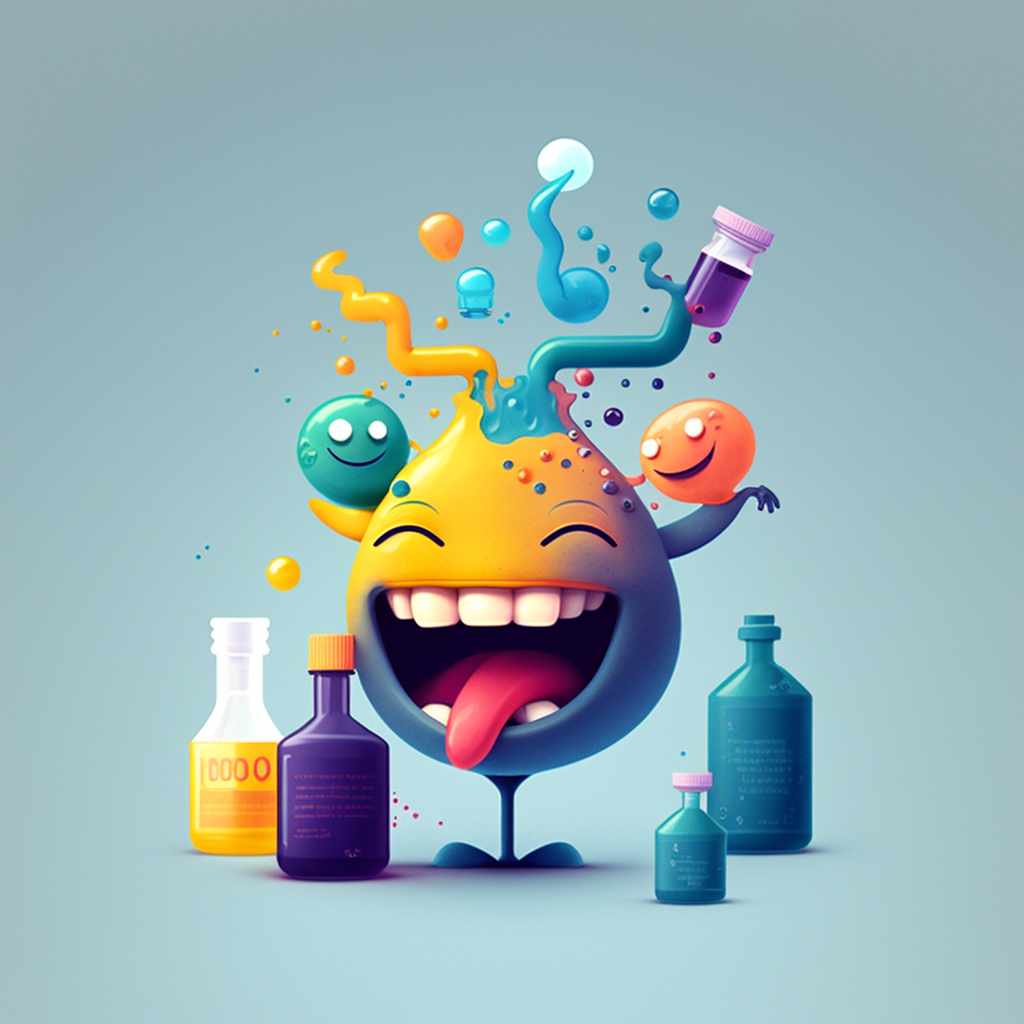Happy Brain Chemistry 101: Hacking Your Way to Happiness
Unlocking Happiness: A Dive into Brain Chemistry
Happiness – that elusive, sought-after state of being that we all yearn for. What if I told you that it’s not just a matter of chance, but a science you can tap into? In this article, we embark on a fascinating journey through the intricate world of brain chemistry and explore how you can hack your way to happiness. It’s time to decode the secrets behind that radiant smile and the joy that knows no bounds.
Understanding the Brain’s Happiness Chemicals
Happiness isn’t a mere abstract concept; it’s rooted in the complex chemistry of our brains. Our brain releases certain chemicals, often referred to as “feel-good” neurotransmitters, which play a pivotal role in our emotional well-being.
Dopamine: The Reward Molecule
Dopamine is the brain’s natural reward system. It’s released when we accomplish a task, achieve a goal, or experience pleasure. Understanding how to boost your dopamine levels can lead to a lasting sense of contentment and motivation.
Serotonin: The Mood Stabilizer
Serotonin is known as the “feel-good” neurotransmitter. It plays a significant role in regulating your mood, promoting feelings of well-being, and reducing anxiety. An imbalance in serotonin levels can lead to mood disorders.
Endorphins: The Pain Relievers
Endorphins are the body’s natural pain relievers. They’re released during exercise, stress, and even when you eat spicy food. These “feel-good” chemicals can elevate your mood and create a sense of euphoria.
Oxytocin: The Love Hormone
Oxytocin, often associated with bonding and trust, plays a critical role in forming social connections. It’s released during moments of intimacy, bonding, and even when you hug someone you care about.

Hacking Your Happiness
Now that we understand the brain chemicals that contribute to happiness, let’s explore how to hack into this intricate system and boost our well-being.
Engage in Activities You Love
Dopamine is released when you engage in activities you enjoy. Whether it’s a hobby, a sport, or a creative endeavor, find what brings you joy and make time for it regularly.
Exercise Regularly
Exercise isn’t just great for your physical health; it’s a fantastic way to release endorphins. Whether it’s a brisk walk, a yoga session, or an intense workout, get moving and feel the positive effects on your mood.
Practice Gratitude
Cultivating gratitude can boost serotonin levels. Keep a gratitude journal, reflecting on the things you’re thankful for, and watch your mood improve.
Connect with Loved Ones
Oxytocin, the love hormone, is released when you connect with loved ones. Spend quality time with friends and family, nurture your relationships, and enjoy the positive effects on your well-being.
Help Others
Acts of kindness trigger the release of dopamine and can elevate your mood. Volunteering and helping others can be a rewarding way to boost your happiness.
Meditation and Mindfulness
Mindfulness practices can increase the release of serotonin. Meditation, deep breathing, and being present in the moment can promote feelings of well-being.
The Journey to Lasting Happiness
Happiness is a journey, not a destination. By understanding the intricate dance of brain chemistry and applying these happiness hacks, you can lead a happier, more fulfilling life. It’s not about chasing fleeting moments of joy but creating a lasting sense of happiness that radiates from within.
In the world of science and self-discovery, unlocking the secrets to happiness is a remarkable journey. So, embrace the art of hacking your brain chemistry and embark on a path to lasting joy. Your radiant happiness is waiting to be unveiled.
The Science Behind Happiness: Decoding Brain Chemistry
Happiness is not just a fleeting emotion. It’s a complex interplay of chemicals in our brain that can be influenced and even controlled to a certain extent. Understanding the science behind happiness is the first step towards achieving a more joyful and fulfilling life.
Dopamine: The “Feel-Good” Neurotransmitter
Dopamine is often referred to as the brain’s “feel-good” neurotransmitter. It’s released when we experience pleasure, accomplish a goal, or engage in activities we enjoy. The anticipation of a reward also triggers dopamine release, which explains why setting and achieving goals can bring us so much joy.
How to Boost Dopamine:
- Set and accomplish small daily goals.
- Engage in activities you’re passionate about.
- Celebrate your achievements, no matter how small.
- Try new experiences and explore the unknown.
Serotonin: The Mood Stabilizer
Serotonin is another crucial neurotransmitter that significantly affects our mood. It’s often referred to as the “feel-good” neurotransmitter because it contributes to feelings of well-being and happiness. Maintaining balanced serotonin levels is essential for mental health.
How to Boost Serotonin:
- Engage in regular exercise.
- Spend time in natural sunlight.
- Practice relaxation techniques like meditation and deep breathing.
- Maintain a balanced diet with adequate protein and nutrients.
Endorphins: Natural Pain Relievers
Endorphins are the body’s natural pain relievers, and they play a significant role in making us feel good. These chemicals are released during physical activity, stress, pain, and even when we consume spicy foods. Endorphins create a sense of euphoria and can relieve stress and anxiety.
How to Boost Endorphins:
- Engage in regular exercise, especially cardiovascular activities.
- Practice deep breathing techniques.
- Laugh and find humor in everyday life.
- Consume spicy foods in moderation.
Oxytocin: The Love Hormone
Oxytocin is often associated with bonding, social connections, and trust. It’s released during intimate moments, such as hugging, kissing, and physical touch. This hormone is a key player in forming and maintaining close relationships.
How to Boost Oxytocin:
- Spend quality time with loved ones.
- Engage in physical affection, like hugging and cuddling.
- Practice empathy and compassion in your relationships.
- Participate in group activities and social gatherings.
Hacking Your Happiness: Practical Tips and Insights
Now that we’ve delved into the science behind happiness and the brain chemicals that contribute to it, let’s explore practical ways to hack your happiness and boost your well-being.
Engage in Activities You Love
Knowing that dopamine is released when you engage in activities you enjoy, it’s essential to make time for your passions and hobbies. Whether it’s painting, playing a musical instrument, gardening, or any other activity that brings you joy, regular engagement can increase your overall happiness.
Exercise Regularly
Exercise is a powerful tool for releasing endorphins, the body’s natural pain relievers. Whether it’s a brisk walk, a high-intensity workout, or a relaxing yoga session, physical activity can boost your mood, reduce stress, and contribute to your overall well-being.
Practice Gratitude
Cultivating gratitude is a simple yet effective way to boost serotonin levels and enhance your mood. Keeping a gratitude journal or simply taking a few moments each day to reflect on the things you’re thankful for can lead to a more positive outlook on life.
Connect with Loved Ones
Oxytocin, often referred to as the love hormone, is released when you connect with loved ones. Spend quality time with your friends and family, nurture your relationships, and prioritize social connections. Meaningful interactions and emotional bonds can significantly contribute to your happiness.
Help Others
Acts of kindness trigger the release of dopamine, the brain’s reward molecule. Volunteering, helping those in need, or simply performing random acts of kindness can elevate your mood and provide a deep sense of satisfaction and happiness.
Meditation and Mindfulness
Practicing meditation and mindfulness can increase the release of serotonin, the mood stabilizer. These techniques involve focusing your attention on the present moment, which can reduce stress, anxiety, and improve your overall sense of well-being.
The Journey to Lasting Happiness
Happiness is not a destination you reach and stay at indefinitely. It’s a continuous journey that requires self-awareness, effort, and a deep understanding of your own brain chemistry. By applying the principles of happiness hacking, you can lead a happier, more fulfilling life. It’s not about chasing fleeting moments of joy but creating a lasting sense of happiness that radiates from within.
In the world of science and self-discovery, unlocking the secrets to happiness is a remarkable journey. Embrace the art of hacking your brain chemistry and embark on a path to lasting joy. Your radiant happiness is waiting to be unveiled, and it’s within your grasp.










